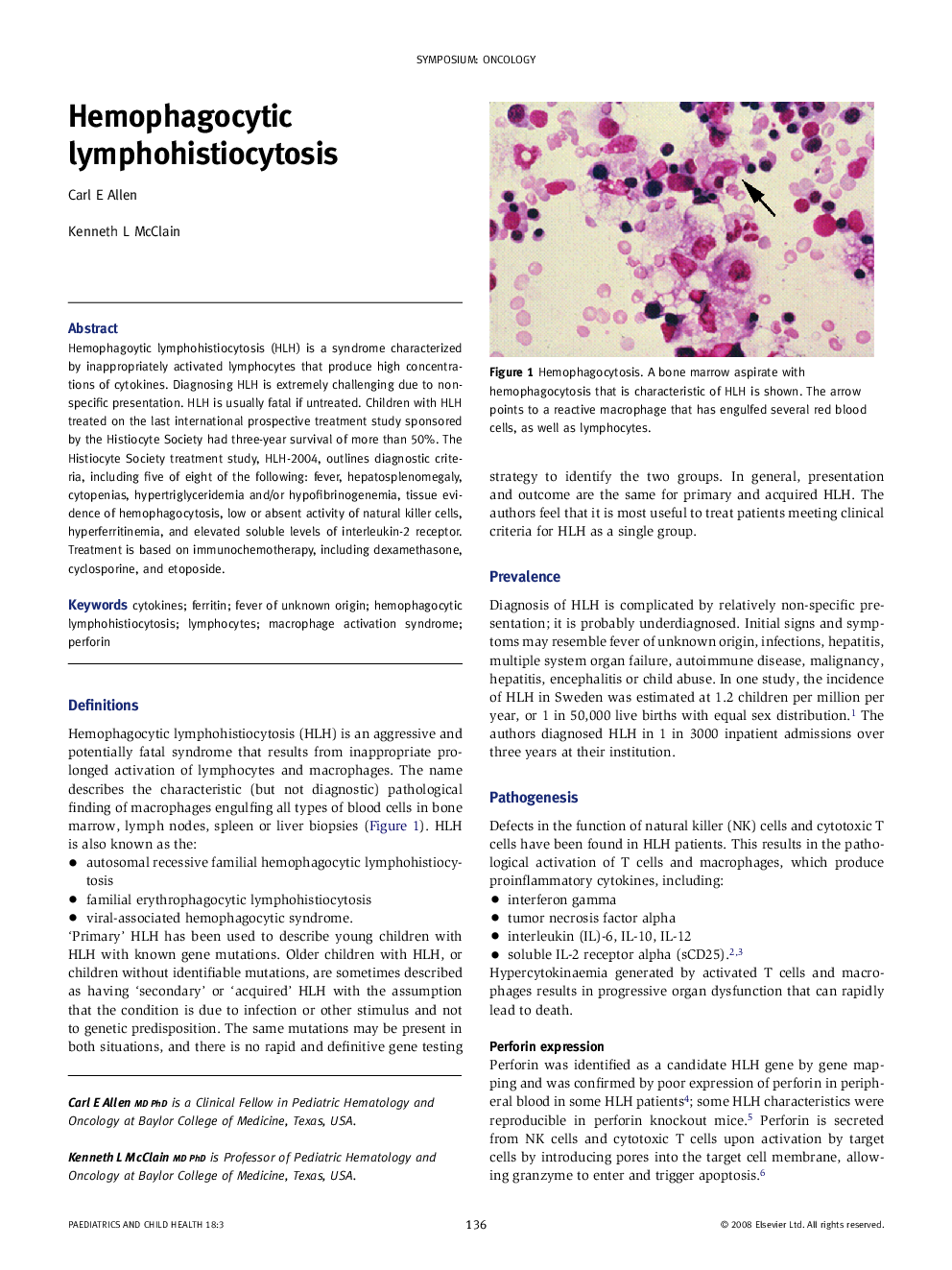| Article ID | Journal | Published Year | Pages | File Type |
|---|---|---|---|---|
| 4172986 | Paediatrics and Child Health | 2008 | 5 Pages |
Hemophagoytic lymphohistiocytosis (HLH) is a syndrome characterized by inappropriately activated lymphocytes that produce high concentrations of cytokines. Diagnosing HLH is extremely challenging due to non-specific presentation. HLH is usually fatal if untreated. Children with HLH treated on the last international prospective treatment study sponsored by the Histiocyte Society had three-year survival of more than 50%. The Histiocyte Society treatment study, HLH-2004, outlines diagnostic criteria, including five of eight of the following: fever, hepatosplenomegaly, cytopenias, hypertriglyceridemia and/or hypofibrinogenemia, tissue evidence of hemophagocytosis, low or absent activity of natural killer cells, hyperferritinemia, and elevated soluble levels of interleukin-2 receptor. Treatment is based on immunochemotherapy, including dexamethasone, cyclosporine, and etoposide.
